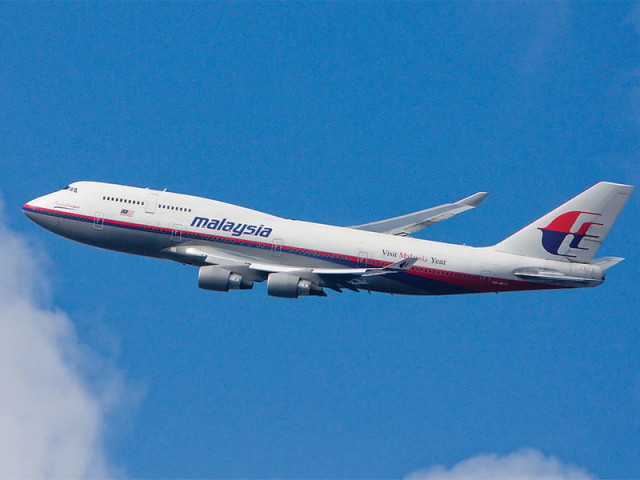Economic reform: Political stability and implementation of plans are necessary conditions
Malaysian minister shares economic model to address Pakistan’s complex problems.

Jala is recognised for his efforts to turn around sinking Malaysian Airlines and is now in charge of monitoring progress on key performance indicators that have been assigned to cabinet colleagues by the Malaysian prime minister. PHOTO: FILE
Political stability, unity in nation and the will to truly implement plans are prerequisites for economic transformation of Pakistan, says Dato’ Sri Idris Jala, a minister in Malaysian Prime Minister’s Department.
“Malaysia is distinct from Pakistan in terms of political stability,” said Jala, who is also chief executive officer of the Performance Management and Delivery Unit, set up to spearhead economic transformation in Malaysia.
He was addressing a press conference here on Wednesday along with Federal Minister of Planning, Development and Reforms Ahsan Iqbal at the conclusion of a two-day visit to Pakistan.
Jala was invited by the federal government to share the Malaysian success model as Islamabad is also in the process of crafting a development path.
He was of the view that Pakistan’s problems were a lot more complex as the country was also facing the problem of war. “If you could find ways how to deal with political instability, investors will come to Pakistan,” he said.
Jala pointed out that there was a clear recognition at the top political level that the country was at a crossroads and people should stand by the government for transformation.
Responding to a question about how to sequence reforms, he suggested, “Do not worry about steps three and four, the country should be worried about the first step.”
Pakistan cannot swallow an elephant in one bite. The government must divide problems into small manageable parts. It can try to do many things simultaneously, but the problem is that the country does not have resources to finance all things at once, Jala said.
He argued that Pakistan was very good in making plans but the problematic area was their implementation. “How to translate a plan into a development programme is the missing link.”
He was of the view that Pakistan could not replicate the Malaysian model in its entirety and the leadership should contextualise their reforms agenda according to the requirements.
Jala is recognised for his efforts to turn around sinking Malaysian Airlines and is now in charge of monitoring progress on key performance indicators that have been assigned to cabinet colleagues by the Malaysian prime minister.
Ahsan Iqbal said a good plan coupled with a good implementation strategy could put the country on the path of sustainable development. The Chinese perception about Pakistan is that policymakers make simple things complex.
He said Pakistan would try the Malaysian model of setting up laboratories and could also apply the strategy of key performance indicators. A performance monitoring unit will be set up in the Ministry of Planning.
He stressed that the government did not want future plans to meet the fate of past plans that were not implemented, adding the government also recognised that the country was at a crossroads.
Owing to inefficiency and years of mismanagement, the economy has come to a standstill. Investment is standing at decades low, economic growth is not higher than the population growth rate, poverty and inequality are on the rise and valuable state institutions are stuck due to mismanagement and corruption.
Iqbal said ping-pong between martial laws and democratic rules led to loss of opportunity of becoming one of the leading nations in Asia. Bureaucrats were best trained but since there were no performance monitoring mechanisms the good and bad bureaucrats were treated equally, he said.
Commenting on the affairs of Pakistan International Airlines, Iqbal pointed to the three options the prime minister had given to the PIA management. The premier told the management to prepare a turnaround plan and if it failed either the entity would be privatised or shut down.
According to Iqbal, the premier said in plain words that the nation could no more bear Rs36 billion annual losses that the taxpayers were suffering due to corruption and mismanagement of the PIA management.
Published in The Express Tribune, September 12th, 2013.
Like Business on Facebook, follow @TribuneBiz on Twitter to stay informed and join in the conversation.



















COMMENTS
Comments are moderated and generally will be posted if they are on-topic and not abusive.
For more information, please see our Comments FAQ